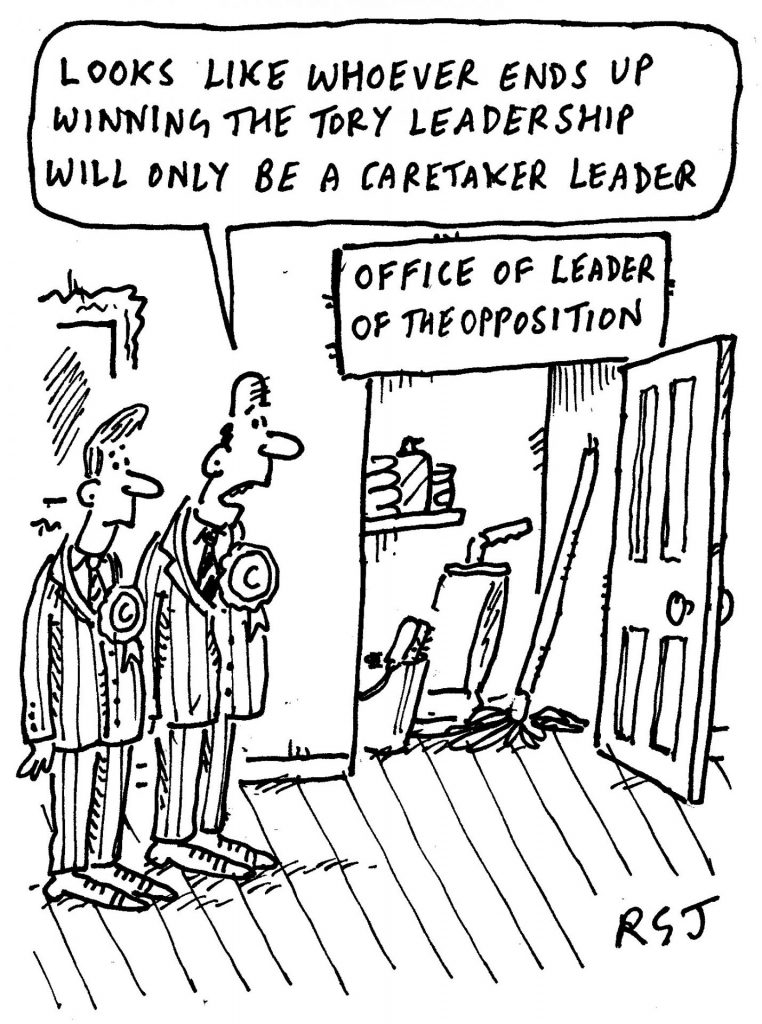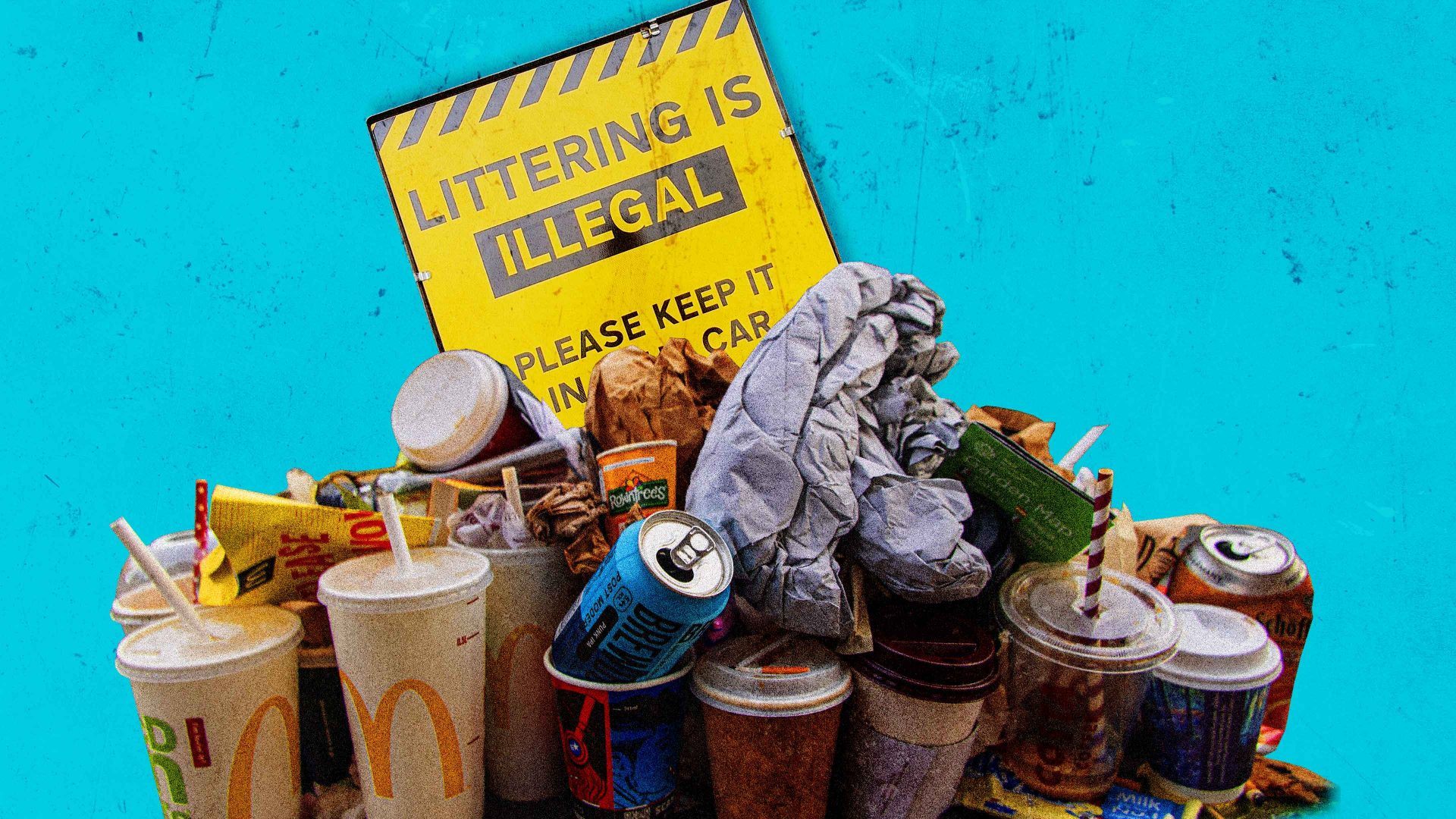I have just driven for 11 hours, with a couple of breaks thrown in, from Calais to Avignon. Three things helped speed the journey along: sharing the driving with Fiona; listening to an audiobook; and obsessively looking for – and failing to spot – litter on the roadside.
You may find this a strange obsession. Indeed it is. Why become obsessed with something that isn’t there?
But that is the point. You can drive for ages in France without seeing a single piece of litter. Driving in Britain, you’re lucky to get a few seconds between spotting roadside refuse.
All too often, there is no gap at all. There a KFC wrapper, there a Coke bottle, there a McDonald’s fries box, there a Red Bull can. Litter is everywhere.
And it is unbelievably dispiriting. Dispiriting because it is so ugly, dispiriting because every piece of litter represents a human being who chucked it there, dispiriting because when you add them all up, it means there are millions of our fellow citizens who simply don’t care about turning their own country into – if I may quote Donald Trump out of context – a garbage can.
Trump’s definition of garbage is a human being who fails to fit his narrow ethno-nationalist view of what an American should look like, all of a piece with his extreme rhetoric as the election nears, and the comparisons with Hitler in the 1930s become all too apparent.
My definition of garbage is more prosaic. It is the waste we collect as we go through our daily lives. It has grown exponentially along with the consumer society.
Governments, councils, businesses, households and individuals have had to adapt. Most, one assumes, have done so. But then you go for a drive along one of Britain’s busy trunk roads and you wonder… are non-litterers now a minority?
Dig into research, and you learn that 48% of Brits ADMIT to dropping litter. I am assuming others who do might not admit it to a pollster, so yes, we are a minority.
More than two million pieces of litter are dropped in the UK every day, and to those who say the problem is worse than before, you’re right… litter has gone up by 500% since the 1960s. Some 1.3 million pieces of litter are dropped on the roads every weekend, and a third of drivers admit to chucking stuff out of their cars.
It is, by the way, a crime. But here is the thing. Hardly anybody bothers to enforce it, while the various authorities responsible for roads pass the buck between each other as to whose job it actually is to clean up the mess.
And, since this brilliant edition edited by Feargal Sharkey discusses the wretched state of our seas and rivers, you may be interested to know that half a million items of litter make their way into the sea from UK rivers every year, having an impact on marine life.
It is true that French motorways tend to have lesser car density, and a pay-as-you-go funding model that means there are more resources to keep them tidy. But it is the same story in French villages and towns and cities. You just do not see as much litter as you do in Britain.
Why? Is there something inherently selfish and untidy about the Brits that makes it so? I doubt it, even if the “individual first, society second” tenet of Thatcherism continues to have consequences.
I suspect it is more that among all the big things that national and local government have to deal with, this one feels all too small. As quality of life issues go, however, it is right up there, and a government that set out to tackle it, and succeeded in doing so, would reap a significant political reward.

Campaigns need obsessives, as Feargal Sharkey has shown. He has done more than anyone to move the dial on the debate about water quality, and the failings of water privatisation.
On the subject of litter obsessives, a shout out to John Read, the founder of Clean Up Britain, whose passion for his issue shines through every bit as much as Feargal’s does for his. It was partly as a result of meeting John, and seeing the sickening photographic evidence he had gathered from roadsides all over Britain, that I developed the habit of looking for litter whenever driving, and noting the huge difference between Britain and other countries.
John was keen for me to follow Jeremy Paxman as CLUB’s patron, but I am aware of my own tendency towards obsessiveness, and a desire, if I do something, to do it properly, all in. So instead, given all the other demands on my time and other campaigns I am engaged in, I have opted to be a CLUB Campaign Champion.
Any ideas for a good patron gratefully received, and do check out their website and offer what support you can.
“What was the audiobook?” I hear you ask, so let me tell you. Say Nothing, by Patrick Radden Keefe, which I had read when it first came out in 2019.
Why listen to a book I had already read? Because we had just listened to the BBC podcast series by Glenn Patterson on the Brighton bomb attempt to wipe out Mrs Thatcher’s cabinet. So Fiona’s Northern Ireland history appetite was strong, and I recommended Say Nothing as one of the best researched, best told accounts of the Troubles in Northern Ireland.
There is always an added interest when people you know are directly involved. Gerry Adams and Gerry Kelly, who I got to know during the Northern Ireland peace talks, both feature prominently, in younger incarnations, as active terrorists, in Kelly’s case one of the 1973 Old Bailey bombers. It is quite a feat of discipline that Adams continues to maintain to this day that he has never been a member of the IRA.
But for a story of raw determination, few could match Dolours Price and her sister Marian, jailed alongside Kelly, and the accounts of whose hunger strikes and force-feeding in Brixton prison are harrowing.
Roy Jenkins was home secretary, and he blinked, eventually agreeing to meet their demand that they should serve their sentences in Northern Ireland.
Both Price sisters became critics of Adams and his colleagues for making peace with the UK government, while Kelly is now an elected member of the Northern Ireland Assembly. There are many more great books to be written about this period of Northern Ireland history, and I hope Patrick Radden Keefe might be tempted back from the US to write another one.
Talking of books, let us take a moment to celebrate the fact that in bookshops all over the UK, piles and piles of Boris Johnson’s much-hyped memoir are lying unsold, while HarperCollins rue the day they agreed to a huge advance for the charlatan’s fictitious account of his life and times.
They will be hoping the book might do better overseas, but the signs are not good. An Australian business friend has been sending me the increasingly desperate emails and WhatsApp messages he is receiving asking his company to take a place at one of the events Johnson is doing to hawk his tome.
“How many times do I have to say no before they understand what no means?” he asks.




